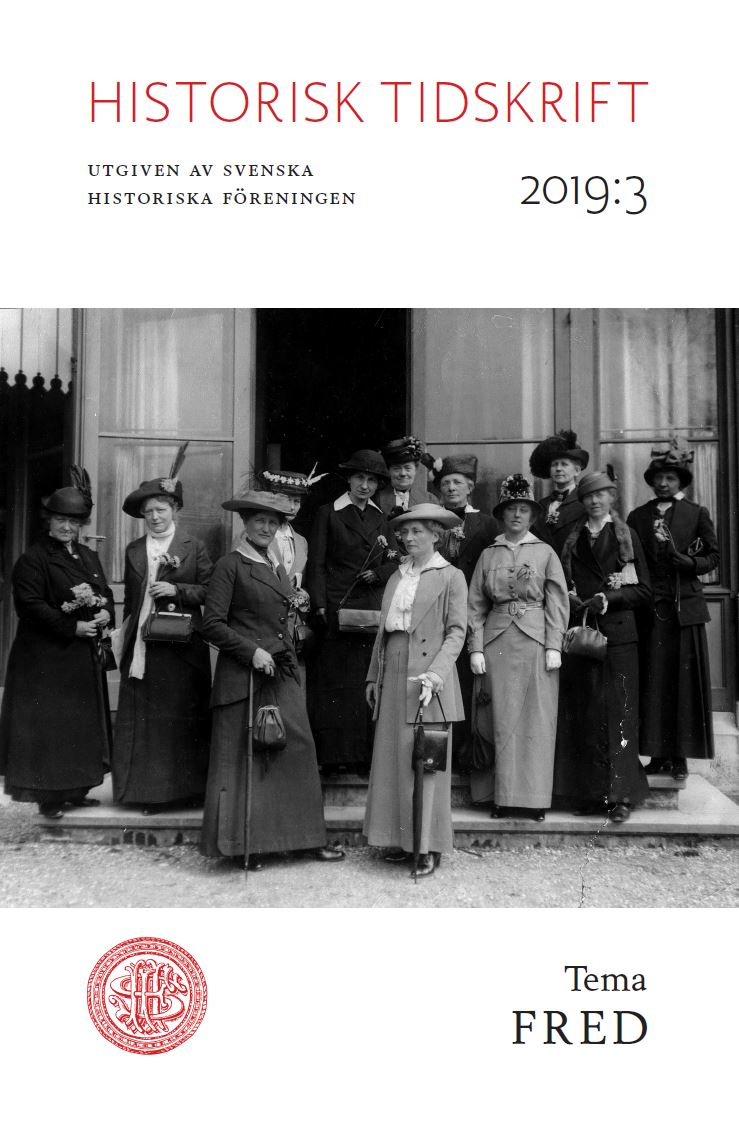Abstract
The International Peace Bureau and the Nobel Peace Prize: Debates about the peace question at peace congresses and in Nobel lectures before 1914
In the 19th century, an extensive liberal and Christian international peace movement developed. In 1891, an umbrella organization, the International Peace Bureau (IPB), based in Bern, was formed to coordinate the international peace work that had previously been divided into a number of different national andinternational federations. This would prove successful. The establishment of a Nobel Prize for Peace in 1901 also meant new opportunities for peace activists to communicate their message. The Nobel Prize lectures delivered by members of the IPB were partly used to promote peace outside the organization, but can also be seen as a part of the internal debate and extensive discussions that continued within the IPB. By examining the debates held at the IPB’s annual congresses and the Nobel Prize lectures of some of its members, this article analyses the IPB’s views of war, peace, nationalism, and internationalism in the early 20th century.
The article specifically examines how the IPB’s various factions viewed the causes of war and the kinds of supranational bodies that could deliver peaceful forms of conflict resolution. In the light of the outbreak of the First World War, the peace movement, which had worked for decades to build global opinion against war, has often been seen as a complete failure. But this article presents a more complicated picture. Pre-First World War debates had consequences for attempts to create a world order regulated by international agreements and intergovernmental cooperative bodies in the twentieth century.
Reinhart Koselleck’s concepts space of experience and horizon of expectation are used to show, firstly, that expectations about the future were bright within the IPB and that there was wide-spread optimism right up to the fatal summer of 1914 and, secondly, that the theoretical groundwork of the IPB, developed from historical experiences and theoretical debates, would be influential after the war. The evolution of supranational cooperative bodies in the 20th century and international frameworks for peaceful conflict resolution drew on a foundation that was already in place before the First World War. The outlines of both an international organization like the United Nations and a European federation like the European Union were discussed extensively by the IPB and its activists.

